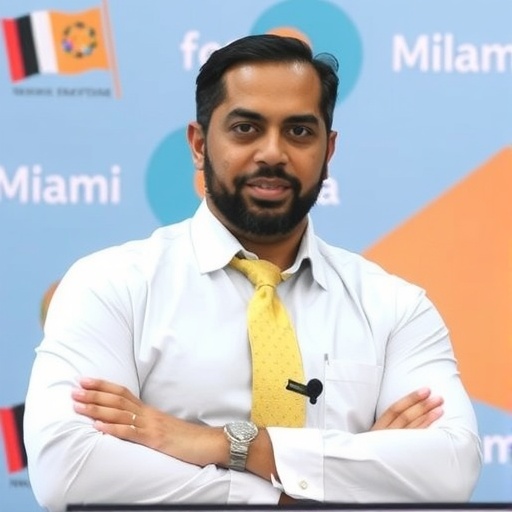Miami Mayor Francis Suarez Blasts Zohran Mamdani’s Policies as Government Overreach Ahead of 2026 FIFA World Cup
In a bold and provocative statement that has ignited debates across the political spectrum, outgoing Miami Mayor Francis Suarez has issued a stark warning to New York City residents about the rising influence of progressive assembly member Zohran Mamdani in New York politics. As the 2026 FIFA World Cup approaches, with both Miami and New York serving as key host cities, Suarez likened Mamdani’s policy visions to the authoritarian overreach of Cuban revolutionary leaders, urging New Yorkers to reconsider their city’s trajectory before it drives more residents southward to Florida’s welcoming shores.
Suarez, who is terming out after two successful terms marked by economic growth and pro-business initiatives, delivered his critique during a press conference at Miami’s Hard Rock Stadium—a venue set to host multiple World Cup matches. “New York’s flirtation with extreme progressive policies under figures like Zohran Mamdani isn’t just misguided; it’s a recipe for the kind of government overreach that we’ve seen crush freedoms in places like Cuba,” Suarez declared, his voice echoing the concerns of many conservatives who view Mamdani’s platform as a threat to urban vitality.
The timing of Suarez’s remarks couldn’t be more poignant. With the FIFA World Cup just two years away, the global event promises to put American cities under an international microscope. Miami, under Suarez’s leadership, has positioned itself as a beacon of innovation and inclusivity, securing FIFA’s nod for six matches, including a semifinal. In contrast, Suarez painted a picture of New York potentially marred by policy experiments that could deter investment and tourism, especially with Mamdani emerging as a frontrunner in the mayoral race.
Suarez Draws Parallels Between Mamdani’s Agenda and Cuban Authoritarianism
Francis Suarez‘s comparison of Zohran Mamdani to Cuban revolutionaries wasn’t mere rhetoric; it was a calculated invocation of history to underscore his fears of government overreach. Born to Cuban immigrants who fled Fidel Castro’s regime, Suarez has long woven his family’s story into his political narrative. During his speech, he recounted how his parents escaped oppression in search of opportunity, drawing a direct line to what he sees as Mamdani’s advocacy for expansive government intervention in housing, taxation, and social services.
Mamdani, a 32-year-old Democratic Socialist representing Queens in the New York State Assembly, has gained national attention for his vocal support of policies like rent control expansions, wealth taxes on the ultra-rich, and defunding aspects of policing. His campaign for mayor, though still in early stages, emphasizes “housing as a human right” and aggressive climate action, which Suarez dismissed as “pie-in-the-sky mandates that stifle private enterprise.”
“I’ve seen what happens when government promises utopia but delivers control,” Suarez said, referencing Castro’s early pledges of equality that devolved into state control over every facet of life. He argued that Mamdani’s push for a “public banking system” and universal healthcare funded by progressive taxation mirrors the central planning that led to Cuba’s economic stagnation. Critics of Suarez, including Mamdani’s allies, quickly fired back, accusing him of fearmongering and ignoring the real crises of inequality in New York.
To bolster his point, Suarez cited statistics from the U.S. Census Bureau, noting that New York’s population has declined by over 600,000 residents since 2020, partly attributed to high taxes and regulatory burdens—issues he claims Mamdani’s policies would exacerbate. “This isn’t about politics; it’s about preserving the American dream that my family fought for,” Suarez emphasized, his words resonating with Miami’s large Cuban-American community, which makes up about 10% of the city’s population.
The ‘Mamdani Effect’ Fuels New York Exodus to Florida
At the heart of Francis Suarez‘s warning is what he’s dubbed the “Mamdani effect“—a term he’s coined to describe the anticipated wave of New Yorkers fleeing New York politics‘ progressive tilt in favor of Florida’s business-friendly environment. Suarez pointed to migration data showing that Florida gained over 300,000 new residents from New York between 2020 and 2023, according to the U.S. Census Bureau’s American Community Survey. Many of these movers, he claimed, are middle-class families and entrepreneurs disillusioned by soaring costs and what they perceive as overregulation.
“If Zohran Mamdani becomes mayor, you’ll see an acceleration of this trend,” Suarez predicted. He highlighted Miami’s explosive growth, with the metro area’s GDP surging 5.2% in 2023 per the U.S. Bureau of Economic Analysis, outpacing New York’s stagnant 1.8%. Policies under Mamdani, Suarez argued, such as his support for a $20 minimum wage and stringent rent stabilization, could price out small businesses and drive up housing costs further, pushing more residents to sunnier locales like Miami.
Anecdotal evidence abounds: Real estate agents in South Florida report a 40% increase in inquiries from New Yorkers since the pandemic, many citing frustration with government overreach in areas like remote work mandates and vaccine requirements during COVID-19. Suarez shared a story of a fictionalized “typical New Yorker”—a tech entrepreneur who relocated his startup to Miami after facing what he called “bureaucratic nightmares” in the Big Apple. “This isn’t hyperbole; it’s happening now, and Mamdani’s vision would pour gasoline on the fire,” Suarez stated.
Economists have weighed in on the debate. Dr. Elena Ramirez, a professor at the University of Miami’s business school, noted in a recent op-ed that while progressive policies aim to address inequality, they often lead to unintended consequences like capital flight. “New York’s loss is Florida’s gain, but at what cost to national cohesion?” she asked, echoing Suarez’s broader concerns about urban divides.
FIFA World Cup Preparations Highlight Contrasting City Visions
As the FIFA World Cup looms large, Francis Suarez‘s defense of FIFA’s role in the event underscores his pro-globalization stance, in sharp contrast to Zohran Mamdani‘s skepticism toward large-scale corporate partnerships. Miami’s preparations are in full swing: The city has invested $100 million in infrastructure upgrades around Hard Rock Stadium, including enhanced public transit and fan zones designed to welcome 100,000 visitors per match day. Suarez touted these efforts as a model of public-private collaboration, crediting FIFA’s selection process for boosting Miami’s international profile.
“FIFA isn’t the enemy; it’s an opportunity,” Suarez asserted, pushing back against Mamdani’s past criticisms of the organization. Mamdani has called for greater labor protections for stadium workers and environmental safeguards during World Cup events, views Suarez labeled as “disruptive overreach that could jeopardize hosting rights.” He referenced Qatar’s 2022 World Cup controversies but argued that the U.S. must avoid similar pitfalls by embracing efficient governance, not adding layers of red tape.
New York’s preparations, centered on MetLife Stadium in East Rutherford, New Jersey, face their own hurdles. With an estimated economic impact of $5 billion for the region, per FIFA projections, the city is under pressure to streamline permitting and security. Suarez warned that Mamdani’s policies could complicate this, citing his opposition to certain police funding as a risk to event safety. “Imagine World Cup fans navigating a city strangled by progressive experiments—it’s a nightmare for tourism,” he said.
Stakeholders from FIFA have remained neutral, but insiders suggest the organization favors host cities with stable, business-oriented leadership. Miami’s edge, Suarez implied, positions it as the star of the 2026 show, potentially drawing investment away from a faltering New York.
Broader Ramifications for American Urban Policy Debates
Francis Suarez‘s salvo against Zohran Mamdani extends beyond personal critique, igniting a national conversation on government overreach in the context of New York politics and the upcoming FIFA World Cup. Progressive leaders like Mamdani argue that bold policies are essential to combat New York’s affordability crisis, where median rent exceeds $3,500 monthly and over 1.5 million residents live in poverty, according to the city’s own Comptroller’s Office.
Yet Suarez counters with data from Florida’s success: Miami’s unemployment rate sits at 3.1%, below the national average, thanks to tax incentives and deregulation. He envisions a “Mamdani effect” not just as migration but as a policy contagion, where other cities learn from New York’s missteps. “Florida isn’t perfect, but we’re building for the future—affordable housing through incentives, not mandates,” he explained, referencing Miami’s 20% increase in housing starts since 2021.
Political analysts predict this feud will shape the 2025 New York mayoral race, with Mamdani’s challengers potentially adopting Suarez’s framing to appeal to moderates. On the national stage, it highlights deepening divides between blue-state progressivism and red-state conservatism, especially as the World Cup amplifies these contrasts globally.
Looking ahead, the implications are profound. As preparations for the 2026 FIFA World Cup intensify, cities like Miami and New York must navigate these ideological waters. Suarez’s warnings could influence voter turnout and policy shifts, potentially altering the urban landscape for years to come. Will New York heed the call to temper government overreach, or will it double down on progressive ideals? The world will be watching—literally, from the stands of packed stadiums.
In the meantime, Suarez’s post-mayoral plans include consulting on urban development, perhaps even advising other cities on avoiding the pitfalls he sees in Mamdani’s playbook. As one era ends in Miami, the ripples of his critique are just beginning to spread.








